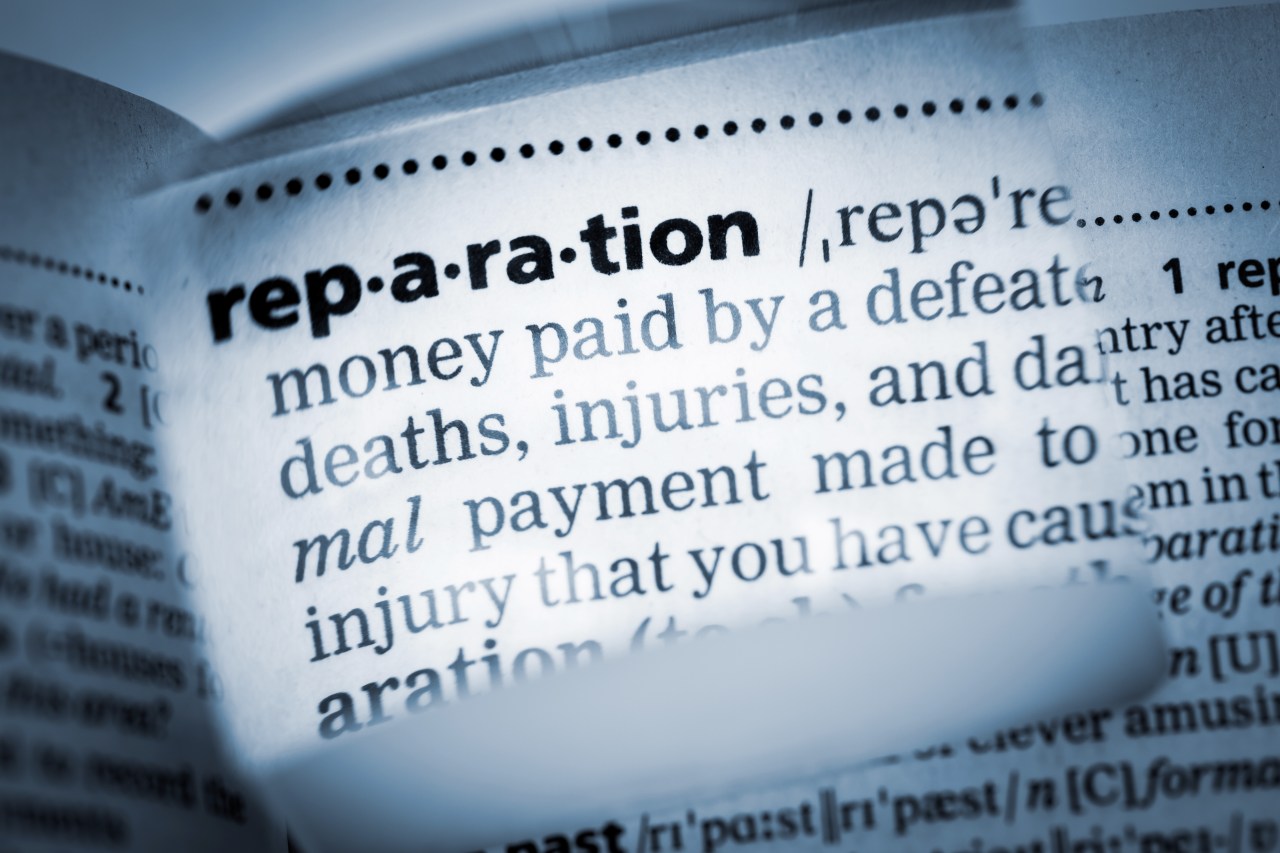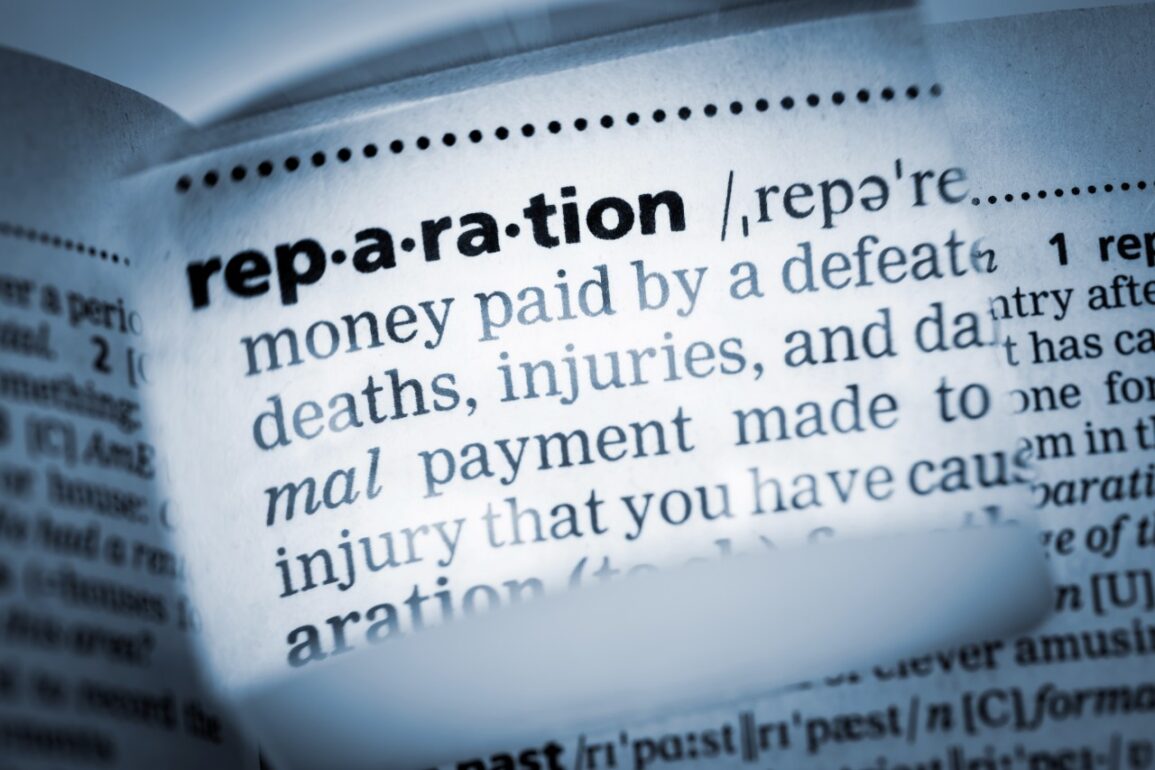
NEWARK, N.J. (PIX11) — In just over a month, on Juneteenth, a preliminary report will release one of the country’s most comprehensive analyses of reparations, ways to compensate for economic, legal, and political inequities resulting from slavery, Jim Crow, and other historical practices.
The New Jersey-centered effort is meant to be a guide to the first steps toward righting wrongs that are four centuries in the making. What that may look like will be laid out on June 19.
PIX11 News received a detailed preview and examined the issues and history behind the upcoming proposals more closely.
Reparations come with controversy among many residents of the Garden State, even some of African descent, like Kevin Pritchett, who lives in Newark.
More PIX11 Stories
Local News
“Oh, I think it’s an impossible thing to do,” he said, “because you’re talking about slavery, and how many hundreds of years ago was that?”
Sharon Beamon is a resident of West Orange and is also Black. She described reparations as “actually receiving what we should have from years ago.”
When asked if she thought reparations could happen in New Jersey, she said that it was “very likely.”
The two very different views represent how widely varied opinions are on the subject of reparations.
Its dictionary definition means repairs or making amends for a wrong or injury.
Jean-Pierre Brutus, who leads the reparations effort in New Jersey, put it another way.
“We have big harm,” historically, he said, and now there needs to be “big repair.”
Support for the proposal nationwide is mixed, at best.
The most recent comprehensive poll by YouGov asked whether the government should make cash payments to Black Americans. Fifty-eight percent said it shouldn’t, 24% said it should, and 19% were unsure.
Brutus, the senior counsel in the Economic Justice Program at the New Jersey Institute for Social Justice, said that the numbers could rise with more education about past injustices and how they relate to the general public.
“They don’t realize the direct connection they may have to slavery,” he said.
The New Jersey effort, called the Reparations Task Force, aims to inform more people about the effects that enslavement and other racist practices that have been approved by and enforced by governments have on the culture at large.
He said that those practices had a strong effect nationwide but that New Jersey’s history is uniquely discriminatory and that it could be uniquely exemplary for remedying past wrongs.
“We hope that other states, particularly that had slavery in a significant manner,” Brutus said, “can look to New Jersey and say, ‘Hey, we can do that.’”
New Jersey had documented enslavement dating to the third decade of the 1600s.
Perth Amboy, at the west end of Raritan Bay, off the Atlantic Ocean, was one of the East Coast’s largest slave ports in the colonial period. At what’s now the Perth Amboy Ferry Dock was a slave market where Africans were brought by the thousands and sold.
Leslie Wilson, a professor of American and African American Studies at Montclair State University, said that the situation in colonial New Jersey from the mid-1800s onwards was similar to what many people associate with the American South.
“They’re doing cotton, they’re doing tobacco,” Wilson said about North Jersey plantations. “They’re doing all kinds of different crops, and so slavery was deeply entrenched.”
He pointed out that in the late 1700s, Bergen County had the state’s largest slave population, about 20% of all residents and 40% of the county’s laborers.
Also, even though the rest of the northern states passed the Emancipation Proclamation, which officially ended slavery in 1863, New Jersey did not adopt it until 1866, a year after the Civil War ended.
Brutus of the NJ Institute of Social Justice said that was part of a larger process of policies that withheld full rights and privileges for Black people.
“Once [slavery] was abolished here in New Jersey,” he said, “New Jersey was involved in redlining and other forms of segregation.”
Redlining was a practice by banks that declared Black neighborhoods unfit for granting mortgages. New Jersey also built Blacks-only schools, and its Black World War II veterans had very limited access, if at all, to generous G.I. Bill benefits, among other shortcomings.
“And so what do we do?” asked Brutus. “Well, that’s where reparations come in, right?”
His organization leads the New Jersey Reparations Council, a group of about 45 experts in various areas — from enslavement history to modern banking — where Blacks have been negatively impacted historically. The council was formed last year after New Jersey’s legislature wouldn’t create its own council.
By not doing so, the Garden State chose to take the opposite action of California’s legislature. After two years of analysis, California’s reparations council recommended a formal apology to Blacks and more than 100 actions to address the effects of slavery. However, the Golden State’s reparations council did not recommend cash payments.
However, California was not officially a slave state, even though some enslaved people were transferred into the state from states where slavery was legal to work for them in the California Gold Rush.
“New Jersey, I think, is vastly different” than California and other states, Dr. Wilson, the Montclair State historian, said.
Could that difference lead to reparations in the form of cash payments in New Jersey? It’s unclear, but there are precedents in the U.S. for mass payouts being made to try and right wrongs. In 1988, the federal government paid $20,000 each to the survivors of World War II-era Japanese-American internment camps.
The government also paid $122 million to Sioux tribal nations to compensate for taking their land. The Sioux have also been awarded some $1.3 billion additional compensation, which they’ve refused to accept due to a legal dispute against the federal government.
Still, the fact that there are those payments, among others, said Brutus, “means that we can do it now for black people.”
He said that the reparations council is expected to recommend a variety of forms of compensation, as well as provide more specifics about who would be eligible for them, in a preliminary report to be presented at NJPAC in Newark this Juneteenth. Columbia Journalism School Dean Jelani Cobb will host the presentation.
The council will then engage in another year of analysis and public input and will make its final recommendations to the state government on Juneteenth 2025.
Whether or not the state legislature and Gov. Phil Murphy will adopt those recommendations is yet to be seen.
Brutus said that it makes sense to adopt the recommendations because they are intended to right wrongs that have long been inherent in the economy, culture, and state and national social and political systems.
“Racial inequality was created by design,” Brutus said, “and that means that racial equality can be created by design — by policy design.”
Suggest a Correction



